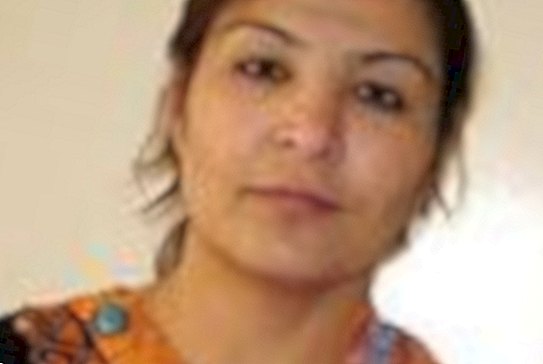Horia Mosadiq: "I firmly believe in justice in Afghanistan"

ChroniquesDuVasteMonde.com: You are a mother of three and you are a journalist for human rights in Afghanistan. Are you sometimes afraid of being on the Taliban's death list yourself?
Horia Mosadiq: No. Surely I put myself in danger by exposing human rights abuses in Afghanistan, even revealing the names of important offenders. But I firmly believe in justice and therefore I am not afraid.
ChroniquesDuVasteMonde.com: The Taliban regime collapsed in 2001, according to the constitution women and men have equal rights. But there are always terrible attacks on girls' schools. Taliban followers inject acid into the face of schoolgirls, some are disfigured throughout their lives. Are girls increasingly afraid to go to school?
Horia Mosadiq: It is true that in the last three years the attacks have increased, especially to the girls' schools. Of course, many students are confused, some are afraid. Nevertheless, most people are not deterred and still go to school.
ChroniquesDuVasteMonde.com: Many Afghan girls were forcibly married at a very early age. Is this still common practice today?
Horia Mosadiq: Unfortunately yes - although forced marriage is forbidden according to the Islamic religion. I know of a woman in the south who was forced by her father to marry a man 25 years his senior. She fled home, was picked up by the police and detained, for which there was no legal basis at all. The bad thing is that these women do not get the slightest support from the government and the judiciary.
ChroniquesDuVasteMonde.com: Women are repeatedly victims of domestic violence in Afghanistan, are abused by their husbands and beaten. Can you find shelter in women's shelters?
Horia Mosadiq: There are several women's shelters in the larger cities, but they are far from sufficient. And often, not only the victims are at risk, but also the employees of the women's homes, which are threatened by the husbands of the victims. I met a woman who was routinely beaten and abused by her husband, who was a mighty post-commander. One day she has filed a lawsuit against him. In order to save her from him, the local women's department housed her in a women's shelter in Kabul. The husband has done everything possible to find them, while also threatening employees of the women's homes. Help can be very dangerous.
ChroniquesDuVasteMonde.com: To what extent can women activists fight for women's rights today?
Horia Mosadiq: You have to face death threats and live in constant fear. In the last two years, several prominent women have been killed by the Taliban, such as the German-Afghan women's rights activist Setara Achekzai or Malalay Kakar, a high-ranking police officer in Kandahar. But not only are the Taliban against these active women - sometimes they are their own family members.










